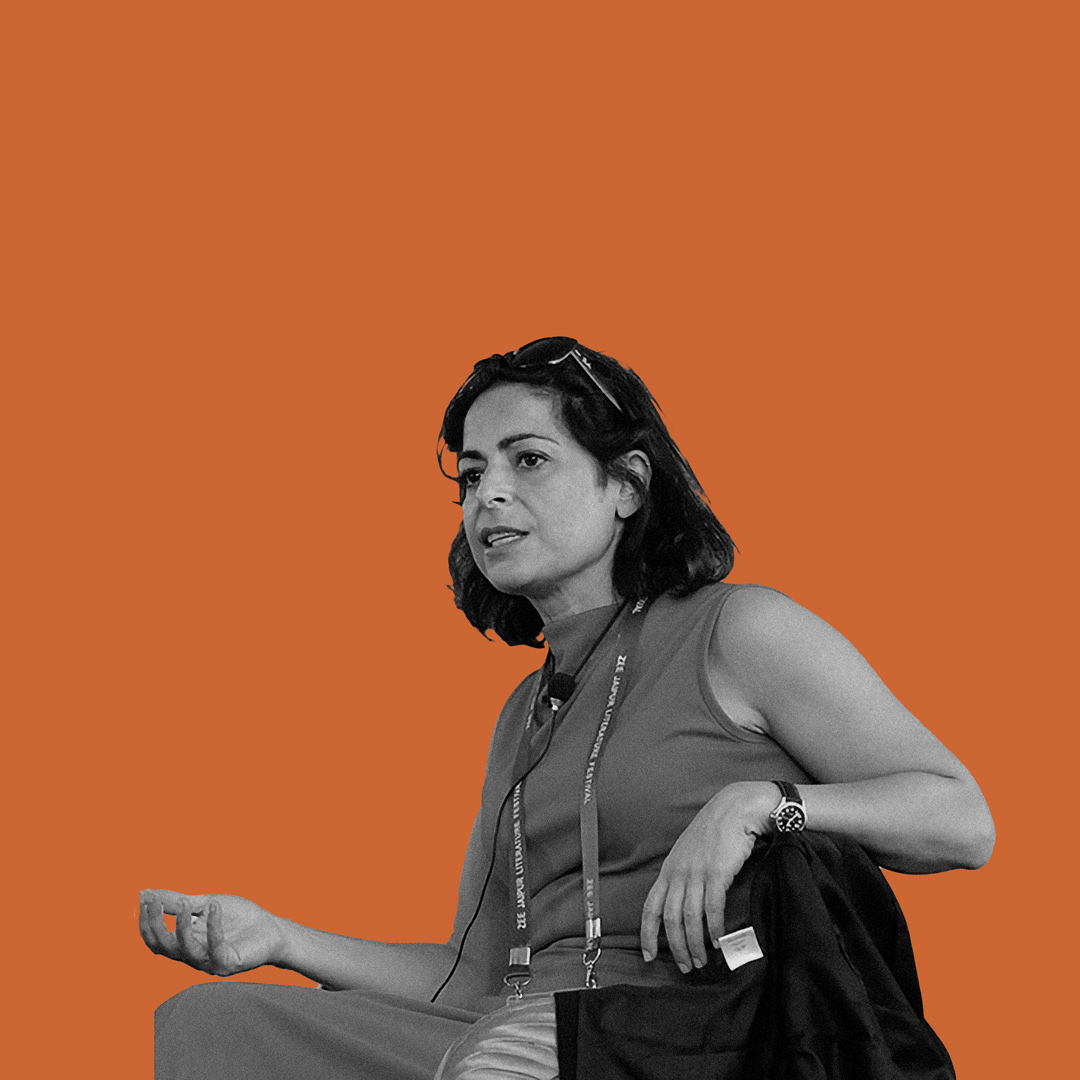Laleh Khalili
Professor of International Politics at Queen Mary University of London
Complete testimony
| Min. 12:07 | Global capital [dictates] the terms in which infrastructures, whether it's extractive infrastructures, or productive ones, or circulatory ones like ports, are located. And I think that is actually one of the more interesting spaces of struggle [...]. When we're looking at a port, there has to be an enormous amount of say by the local authorities on the parameters in which global capital operates in that particular location.
Laleh Khalili
Professor of International Politics at Queen Mary University of London
| Min. 24:09 | The more the job requires automation and higher skills, actually, the higher the possibility of women being able to engage in [port] jobs, [...] But on the other hand, the entry of women into the labour force often comes at the expense of massive reduction in the number of jobs in the first place. And also the removal of some categories of jobs altogether from operations.
Laleh Khalili
Professor of International Politics at Queen Mary University of London
| Min. 45:00 | The ships that are flags of convenience tend to dump a lot more pollution in the waters, tend to have much worse working conditions, tend to have much worse health and safety issues. And often, they also tend to be ships that are in worse shape. […] There needs to be both at the national level, but especially at the municipal level, a much harder line taken around regulation of flags of convenience and blacklisting of some flags or blacklisting of some shipowners in order for there to be a better enforcement mechanism.
Laleh Khalili
Professor of International Politics at Queen Mary University of London
| Min. 46:06 | If we want [the port] to be not securitized, then the ships that are coming into port have to be safe. And so you need a much stronger inspection regime for a municipally in order to ensure that the ships that are coming in are in better shape, you need to have [an active participation] in all of the processes of port planning: by the governance of a particular city or by the port management, for civil groups, neighborhood groups to be involved, but also small business groups to be involved in the planning around the ports.
Laleh Khalili
Professor of International Politics at Queen Mary University of London
| Min. 48:30 | There needs to be a recognition that the ports need to be at a human scale. And so in order for them to function, we can't demand constant growth. We have to think about the trade-offs there. And the trade offs might be that the port won't be the biggest in the region. It might be that it won't be the richest port in the region. But if it is a more humane, more equitable, better integrated port, then that again, that's the job of educating, and it's not just educating the public, it's also educating the politician.
Laleh Khalili
Professor of International Politics at Queen Mary University of London
Bio
Dr. Laleh Khalili is a professor of international relations at Queen Mary University of London. She received her PhD from Columbia University. Her primary research areas are logistics and trade, infrastructure, policing and incarceration, gender, nationalism, political and social movements, refugees, and diasporas in the Middle East. Her latest book, Sinews of War and Trade (Verso, 2020), is an account of how shipping and maritime transportation have become central to global capitalism.
